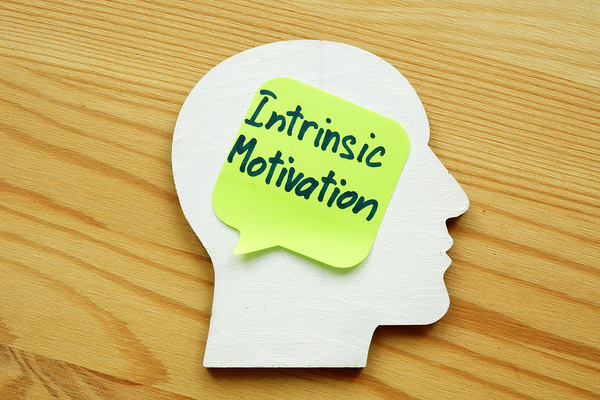THE WORLD’S #1 EXECUTIVE COACHING AND BUSINESS COACHING BLOG SINCE 2017.
Can Intrinsic Motivation be Taught?
December 18, 2020 | Category: Blog, Intelligent Leadership | Last updated on: March 12, 2025
“Intrinsic motivation comes from within you and is powered by your own dreams, aspirations, wants, and wishes.” – Joanna Jast.
When it comes to motivating a workforce, laypersons tend to think on the level of material rewards, such as fatter paychecks, a company vehicle, a larger office, etc. The intelligent leader, on the other hand, understands that such material considerations only provide extrinsic motivation, the effects of which will likely wear off quickly.

True motivation comes from within.
Intrinsic motivation has the power to effect lasting change. It alters behaviors and fulfills deeply rooted psychological and intellectual needs.
Intelligent leaders realize that they can harness the power of intrinsic motivation on the personal level, becoming better leaders while promoting an organizational culture that prioritizes the intrinsic motivation of employees.
In my book Intelligent Leadership, I have identified leadership commitment as one of the key elements of the outer core of the Wheel of Intelligent Leadership. Leadership commitment is your “will do” as a leader. It encompasses the factors that motivate you to become a better leader, such as passion, zeal, drive, and motivation.
What is Intrinsic Motivation?
I define intrinsic motivation as the spontaneous, natural tendency to explore, seek novelty, learn, and expand one’s horizons. It is an innate ability that lets us engage in various activities because we find them satisfying and interesting.
To understand why intrinsic motivation is so much more effective than motivation through extrinsic factors, we need to deconstruct it and analyze its components.
- Autonomy defines a sense of control, the freedom to act by your own will, not compelled by an external controlling party. Autonomy is supremely empowering, and it should be the leader’s lever of choice regarding employee empowerment.
- Mastery translates to a delicate balance between challenge and achievement that makes completing something so enjoyable. It also refers to the confidence in your ability to do well while enjoying the activity that you perform.
- Connection defines the capturing of a sense of purpose in what you do. It is through this connection that you experience the joy and satisfaction you derive from your work.
- Progress in meaningful work. The sense that you are making progress with something meaningful is a powerful driver of motivation. For someone well connected to his/her work, meaningful progress does not equal significant progress. Even small, easily achievable milestones can elevate your levels of intrinsic motivation.
Can You Teach Intrinsic Motivation?
Leadership development coaches have long viewed intrinsic motivation as a powerful avenue to shape leadership performance. They have also identified ways in which leaders can teach themselves the essential leadership skill of intrinsic self-motivation.
- To create autonomy, set long-term goals, define these goals clearly, defeat resistance, and explore choices.
- To build mastery, focus on your sense of competence and frame change as a challenge.
- To establish a connection, make sure that you know why you do what you do. Also, add a personal touch to your goals and define some practical steps you can take right now toward them.
It is important to know and understand your career profile when learning intrinsic self-motivation. Are you promotion-focused and, therefore, a risk-taker? Insist on mastery and autonomy. Are you more transitory in your career preferences? Working on connections and autonomy may make more sense for you.
To teach yourself successfully, you need to understand what type of student you are.
Intrinsic versus Extrinsic Motivation
Conventional logic would tell us that although less effective than intrinsic motivation, extrinsic motivation may still complement the former, amplifying its effects. According to scientific studies like this one, dating back to 1964 and 1968, however, such conventional wisdom would be wrong. There is no synergistic relationship between the two types of motivation.
On the contrary: Extrinsic motivation tends to undermine the positive effects of intrinsic motivation, diminishing them and reducing engagement.



